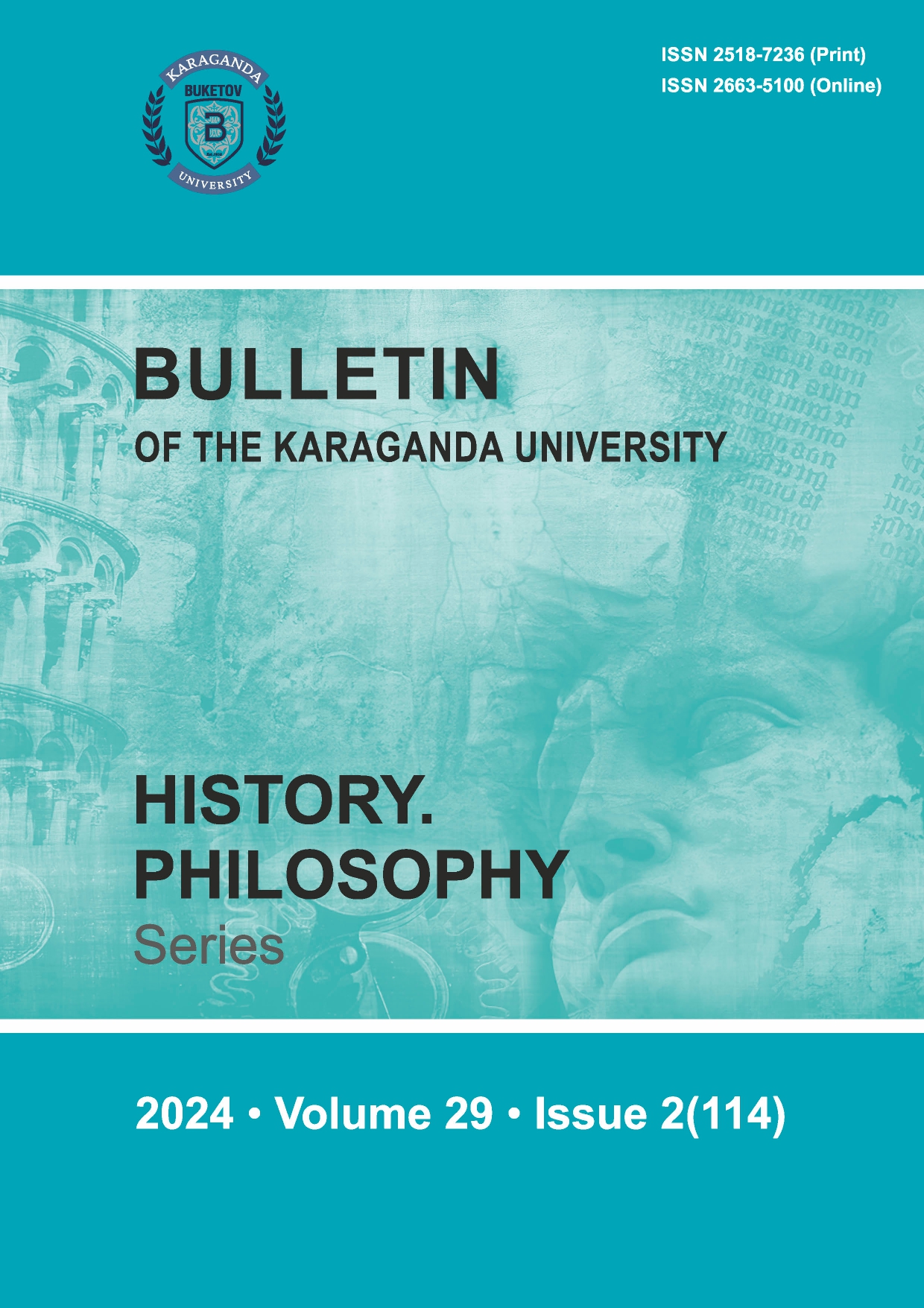The relevance of F. Barth's ideas for modern studies of ethnicity
DOI:
https://doi.org/10.31489/2024hph2/271-278Keywords:
Ethnicity, ethnic identity, dentification, the Bart model, the social boundary, social mechanisms, dichotomizationAbstract
The concept of ethnicity continues to be an important factor for the analysis of modern society of the XXI century. This text is devoted to a critical analysis of the relevance of Frederick Barth's research conducted in 1969 and presented in the work “Ethnic Groups and Borders”. Barth's theoretical model reveals diversity and consistency at the junction of ethnic boundaries, the connection between which is due to the heuristic correlation of the author's concepts reflecting the static and dynamic identity in the aspect of ethnicity. Of particular interest are the less popular categories of Barth's discourse, which represent the positive and negative labeling of ethnic groups in acts of nomination and discrimination. An attempt to draw attention to F.'s ideas, which have already become classic and therefore somewhat outdated. Barth's work is due to the incredible plasticity of his methodology, which, combined with modern approaches (for example, symbolic interactionism) can become a very useful tool for studying ethnic issues in our time. Addressing the ethnic issues of Barth's works contributes to a deeper rethinking of the reality around us and an understanding of the principles of functioning of modern society.




